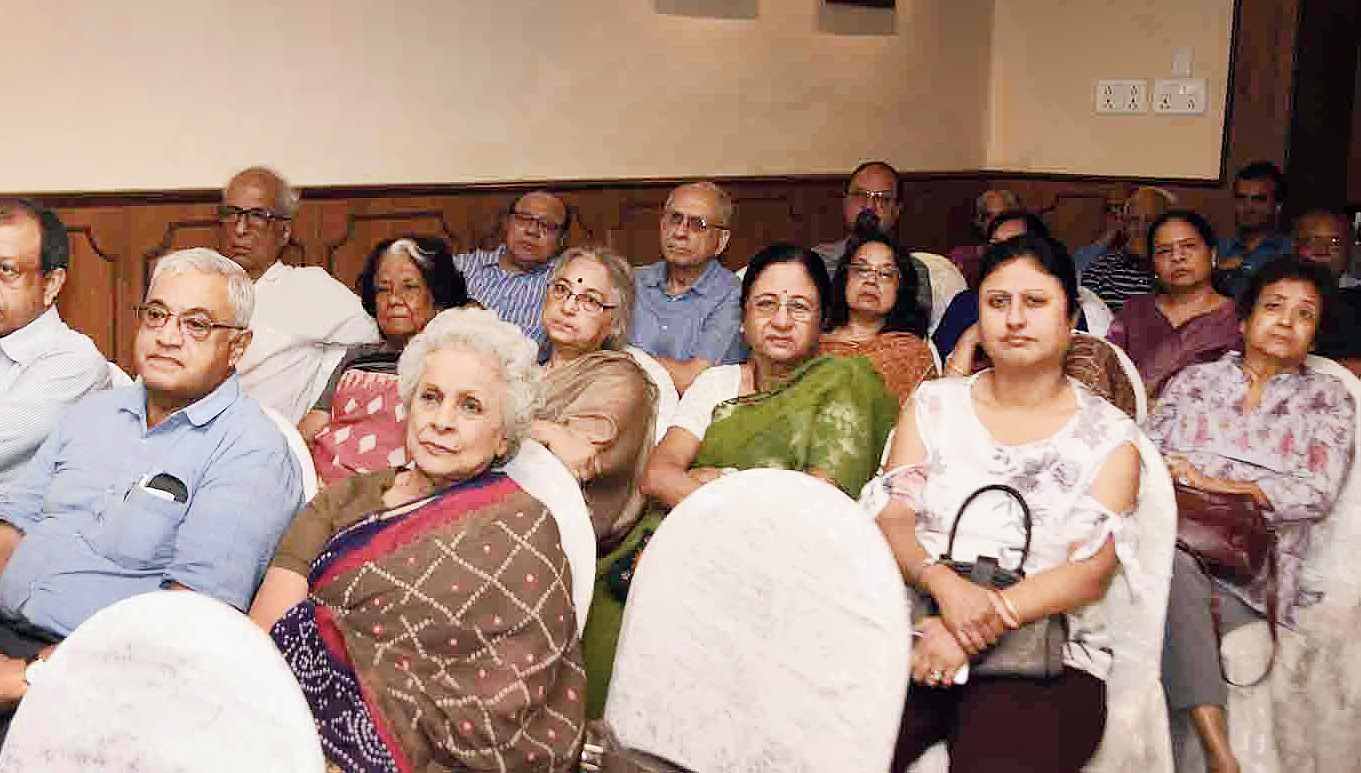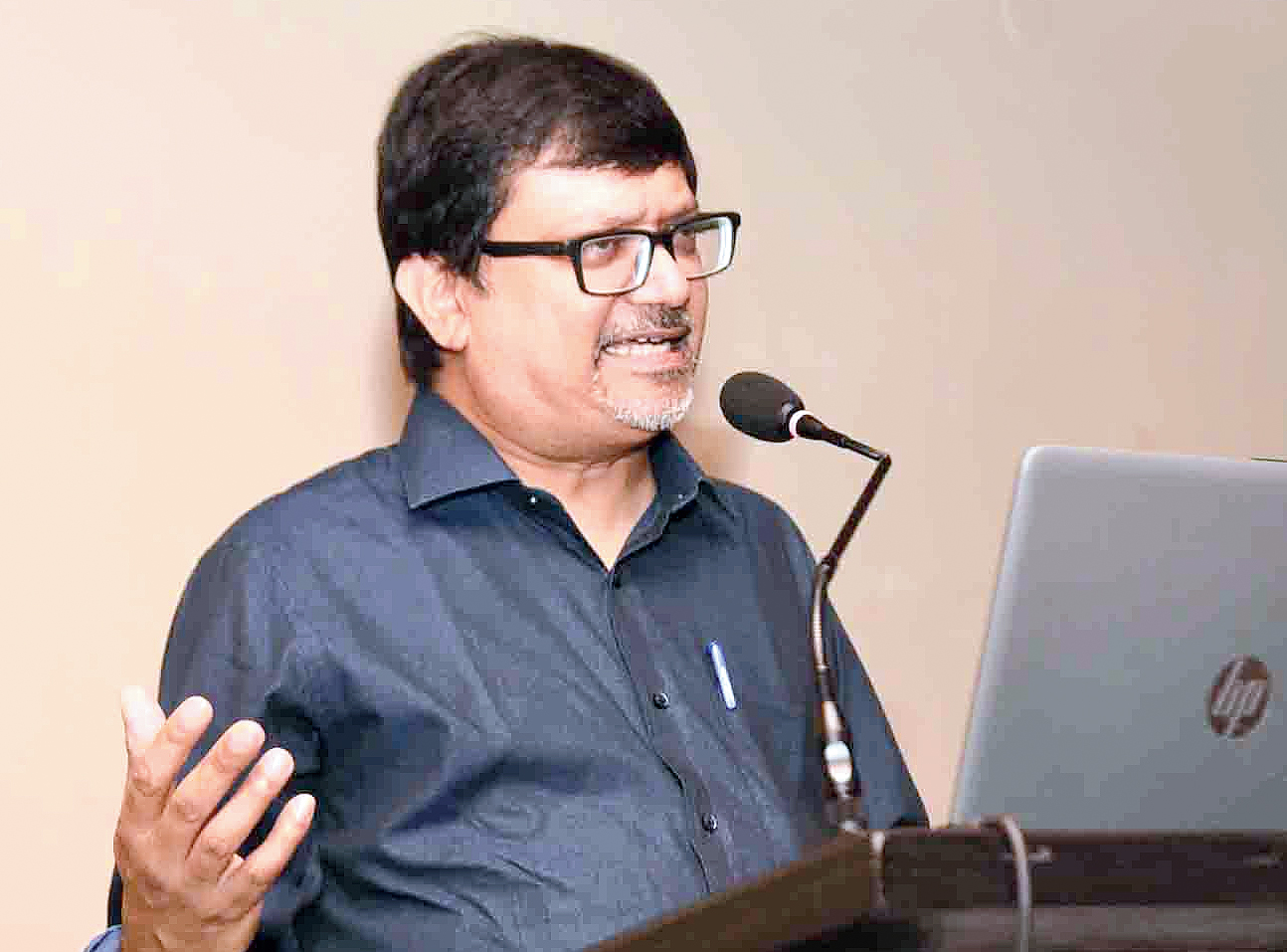
The audience at the talk.
A tradition rooted in the Gupta Empire, a Bengali gentleman’s moustache and the past lives of a Mughal emperor were some of the stops for the audience on a “pilgrimage into the past” of the river Ganga.
Sudipta Sen, professor of history at the University of California, Davis, presented the Ganga as a river that is “reflective of who we are as a people”.
Sen, the author of Ganga: The Many Pasts of a River, which tells the story of the river from prehistoric times to the present, was speaking at The Bengal Club Library Talk, in association with The Telegraph, on Friday.
Excerpts from the talk titled Ganga: The living pulse of Indian History
Site of imperial politics
From the fifth century onwards, thanks to the Gupta Empire, the Ganga as a deity and the Gangetic valley as a territory became imperial territory and an imperial mascot. So elevation of the Ganga into a political icon was very crucial. Ganga water was used for coronation of kings…. The valley became a site of great military contest and, at some point, it became almost de rigueur for any empire worth its name to lay claim to the Gangetic valley. The city that rose was Kanauj. So there’s a reason why something that was sacred became a site of politics.
This is nothing unfamiliar. Power and piety go together.
The river and the Bengali
If we look at the Ganga shown in a 19th-century Bengali panjika (almanac), the makar (mascot of the river) looks very much like the rui (rohu) fish that Bengalis love. Ganga is sitting on the big fish and the makar actually sports a Bengali gentlemanly moustache. People offering various things to the Ganga look like people we know!
One of the texts I’ve looked at is the Ganga Bhakti Tarangini, written in the 19th century by a lesser-known Bengali author. There’s a tremendous description of the Ganga as a great miracle, the descent of the Ganga and descriptions of contemporary Calcutta and the British. So the British slip into stories of the descent of the Ganga without a murmur!
Reincarnation of an emperor
Akbar, who not only built his great fort in Allahabad, the city that he named, actually believed that he was a reincarnation of a Hindu yogi by the name of Mukunda Brahmachari, who had killed himself a few months before Akbar was born. We don’t know for sure whether this is true, but apocrypha, the non-true, is also interesting in mythology and tells us something about the fact that Akbar actually ended ritual suicide from the great banyan tree Akshayavat.











